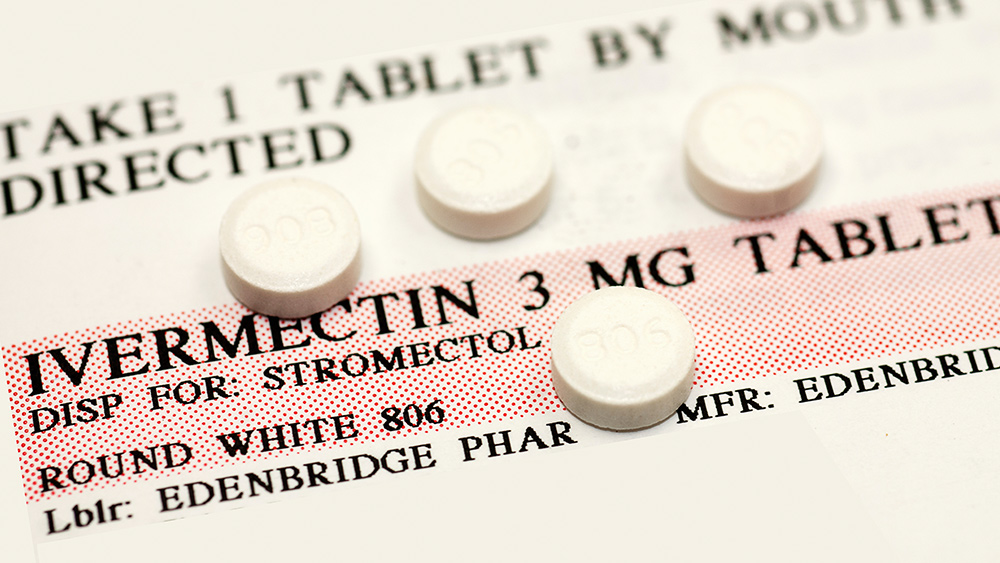- Ivermectin, a low-cost, off-patent drug originally used as an antiparasitic, has shown remarkable efficacy against 28 types of cancer in a Mexican study, with ovarian and breast cancers responding particularly well. Despite its potential, it remains underutilized due to its lack of profitability.
- Merck, the original patent holder of ivermectin, has allegedly discredited the drug to promote its $500,000 mRNA cancer vaccine developed in partnership with Moderna. This suppression is driven by profit motives, as ivermectin’s affordability threatens the market for high-cost treatments.
- The mRNA cancer vaccine, while innovative, is prohibitively expensive and raises ethical questions about accessibility. Its development has overshadowed affordable alternatives like ivermectin, prioritizing profit over patient care.
- Doctors prescribing ivermectin face severe professional repercussions, including loss of licenses and certifications. This suppression highlights a broader trend of prioritizing high-profit treatments over affordable, effective options.
- The battle between ivermectin and the mRNA cancer vaccine underscores the need for a healthcare system that prioritizes patient well-being over corporate profits. Affordable treatments like ivermectin offer hope, but systemic change is necessary to make them widely accessible.
In a world where pharmaceutical profits often overshadow patient care, the battle between affordable, life-saving treatments and high-tech, high-cost solutions has reached a boiling point.
At the center of this controversy is ivermectin, a decades-old drug with proven anticancer properties, and its suppression by Big Pharma in favor of a $500,000 mRNA cancer vaccine developed by Merck and Moderna.
This shocking revelation, discussed in a recent bombshell «Health Ranger Report» interview between Mike Adams and Dr. William Makis, exposes the ethical dilemmas and profit-driven motives that dominate modern medicine.
Ivermectin miracle
Ivermectin, originally developed as an antiparasitic, has emerged as a potential game-changer in cancer treatment.
Makis, a radiologist and oncologist, highlighted a groundbreaking study by Mexican researchers who tested ivermectin against 28 different cancers. The results were astonishing: every single cancer type responded to ivermectin, with ovarian and breast cancers showing the most dramatic improvements.
«Ivermectin has a huge body of research in cancer,» Makis explained. «It’s not just a [Wuhan coronavirus] COVID-19 treatment – it’s a powerful anticancer agent.» The renowned Canadian physician specializing in nuclear medicine, radiology and oncology, cited cases where children with aggressive leukemia achieved remission after failing chemotherapy, thanks to ivermectin. Yet, despite its potential, the drug remains sidelined. (Related: Cancer researcher: IVERMECTIN can overcome chemotherapy resistance of TURBO CANCERS caused by mRNA vaccines)
The reason? Profit. Ivermectin went off-patent in 1996, making it a low-cost, generic drug. Merck, its original patent holder, has since partnered with Moderna to develop an mRNA cancer vaccine priced at $500,000 per treatment. This partnership, Makis argued, is why Merck actively discredited ivermectin during the COVID-19 pandemic.
«They had to suppress ivermectin to give their mRNA technology a green light,» he said.
The mRNA cancer vaccine, currently in phase three trials, represents the cutting edge of biotechnology. However, its exorbitant cost raises questions about accessibility and ethics. Makis points to the case of Professor Richard Scolyer, an Australian doctor who developed brain cancer after multiple COVID-19 vaccinations and is now the first person to receive the experimental mRNA treatment.
While the vaccine may offer hope for some, its development comes at the expense of affordable alternatives like ivermectin.
«The drug companies are only interested in profit,» Adams emphasized. «They have zero interest in human health, quality of life and extending lifespan.»
Suppression of ivermectin
The suppression of ivermectin extends beyond cancer treatment. Doctors who prescribe it face career-ending consequences. Dr. Pierre Kory and Dr. Paul Marik, prominent advocates for ivermectin during the COVID-19 pandemic, were stripped of their board certifications. In Canada, a doctor who prescribed ivermectin in 2021 was fined $40,000 and temporarily lost his license.
«This is the kind of persecution we’ve never seen in medicine,» Makis said. «Ivermectin is 100 times safer than Tylenol or Advil.»
The battle between ivermectin and the mRNA cancer vaccine is more than a scientific debate – it’s a fight for the soul of medicine. As Big Pharma pushes its high-cost solutions, patients and doctors are left to navigate a system that prioritizes profits over lives.
Makis’ work offers a glimmer of hope, proving that affordable, effective treatments exist. But until the system is reformed, these treatments will remain out of reach for many.
Follow IvermectinScience.com for more news about ivermectin.
Watch the video below to know more about the interview of Dr. William Makis with Mike Adams.
This video is from the Health Ranger Report channel on Brighteon.com.
More related stories:
Ivermectin can «kill cancer cells» and boost immune response, suggest health experts.
Ivermectin’s neuroprotective properties could protect against damage from EMFs, vaccines.
Ivermectin is a powerful anti-cancer remedy, 9 peer-reviewed studies conclude.
Sources include:
